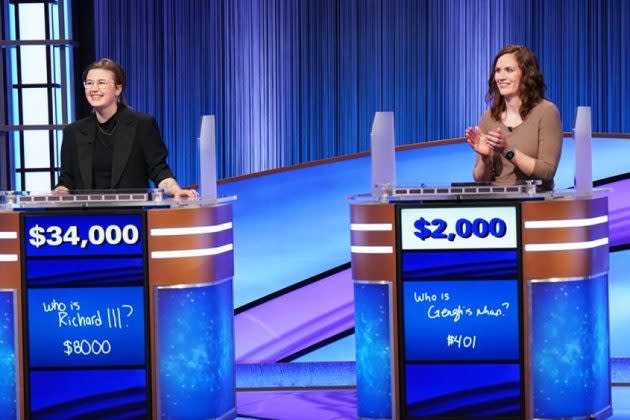Game Shows Shift to Primetime Emmys as the Two TV Academies Continue Their Awards Realignment

Game shows are heading to the Primetime Emmys. As part of the ongoing Emmy realignment between the Television Academy (the West Coast org formerly known as the Academy of Television Arts & Sciences) and the New York-based National Academy of Television Arts & Sciences, the two sides will migrate game show categories from the Daytime Emmys to the Primetime Emmys beginning next year.
The decision comes as, previously announced, the two orgs have agreed to award many programming categories by genre instead of daypart. Game shows remained a sticking point in such an arrangement.
More from Variety
Moving forward, the new Primetime Emmy category for outstanding game show “will be awarded to programs with game elements that primarily take place in studio and involve mental challenges,” the orgs said in an announcement on Thursday. “They must be self-contained or carryover (winner continues to next episode) and cannot be arced.”
According to the announcement, game shows migrating to the Primetime Emmys will have an 18-month eligibility window, Jan. 1, 2022 to May 31, 2023.
As part of the move, the Primetime Emmys will also add a category for outstanding host for a game show, “awarded to the “master of ceremony” host(s) for a continuing performance in a game show.” This year, in their final appearance in the Daytime Emmys, “Jeopardy” continued its streak as the best game show winner, while Steve Harvey (“Family Feud”) won for game show host.
The Primetime Emmys already have an “outstanding competition program” field (which awards programs with reality-style, skill-based competitions). In order to avoid confusion, the category for the latter will return to its original name of “outstanding reality competition program.” Also, game shows and reality competition programs with solely children as contestants must enter in the Children’s & Family Emmy Awards.
The decision to realign the major Emmy awards came last year, with several categories realigned to focus on genre, rather than dayparts, as a way to divide eligibility between the Primetime and Daytime Emmys.
Most notably, the alignment shifted all scripted programming to enter the Primetime Emmys, with two exceptions: Daytime soap operas — defined as “multi-camera, weekday daily serials” and any spinoffs or reboots of those sudsers — will remain with the Daytime Emmys. And as had been previously announced, all children’s fare are now be a part of the new Children’s & Family Emmys, which launches later this year as a new ceremony.
In the talk fields, the TV Academy and NATAS has so far kept two separate talk show competitions in both the Daytime and Primetime competitions, but it’s the next frontier to tackle.
The decision in 2020 to move all of the Primetime Emmy kids categories to the Daytime Emmys (and as of this year, the Children’s & Family Emmys, administered by NATAS) represented a major thaw in the decades-ling cold war between the two TV academies. The orgs split in 1977 over irreconcilable differences, and spent the next few decades at war, ocassionally suing each other over issues of Emmy domains and oversight. Things reached a boiling point in 2008, when NATAS tried to launch its own Broadband Emmys, and the TV Academy balked.
Best of Variety
Michelle Yeoh’s 10 Best Performances, from ‘Crouching Tiger’ to ‘Everything Everywhere'
From 'The Sandman' to 'Blonde': Books Made Into Movies and TV Series That You Should Read
Sign up for Variety’s Newsletter. For the latest news, follow us on Facebook, Twitter, and Instagram.

 Yahoo Movies
Yahoo Movies 